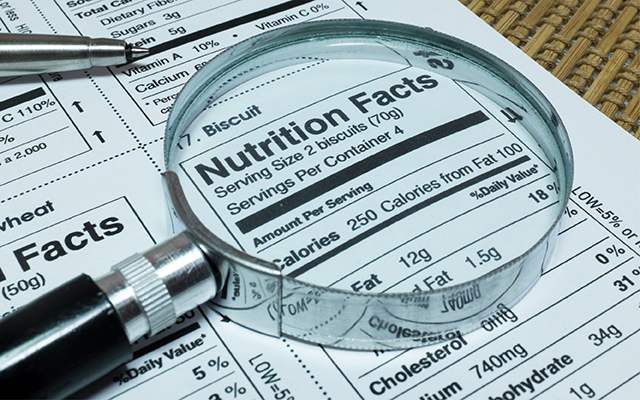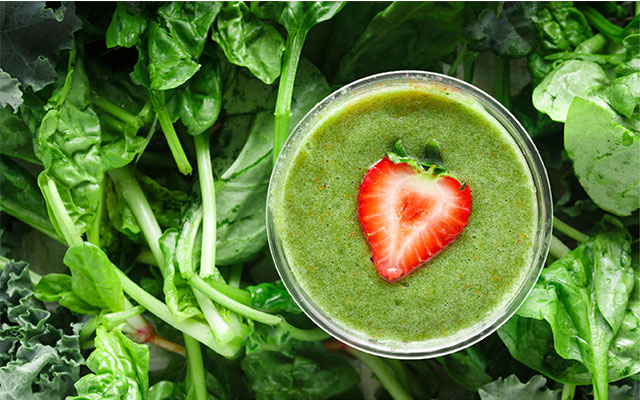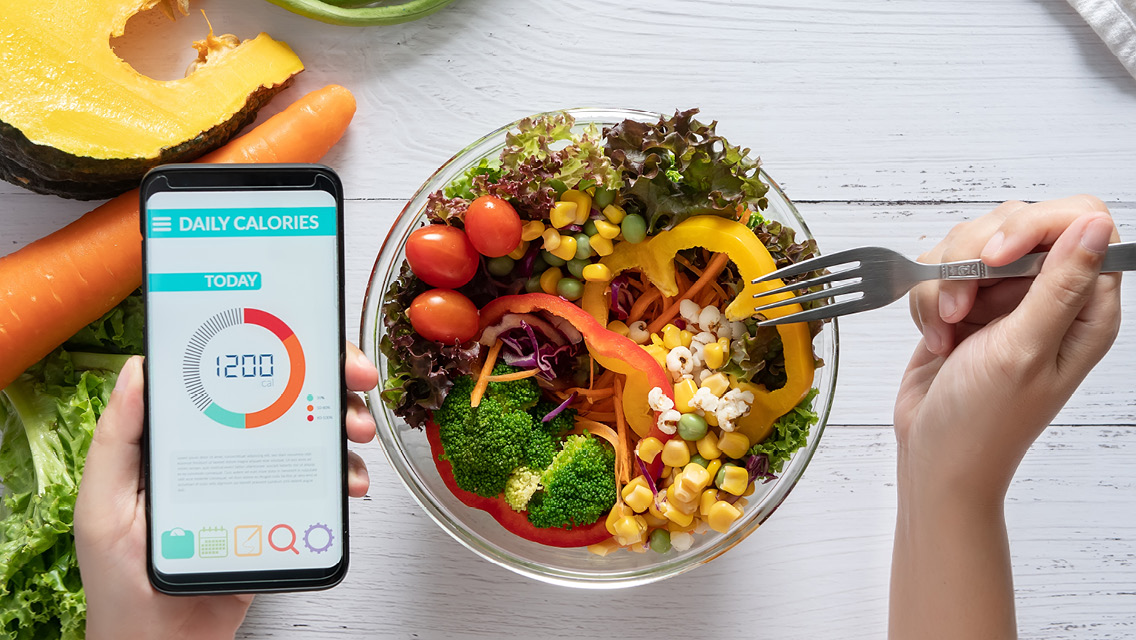Human nature craves simple answers to complex questions. One of the most complicated and debated health questions is how to reach and maintain a healthy weight. But, for the last century, ever since the publication in 1918 of Diet and Health with Key to the Calories — one of the first modern diet books to introduce calorie counting — mainstream dieting advice has focused on the relatively simplistic idea of calories in versus calories out. (The idea of a calorie was so novel back then that the author had to explain how to pronounce the word.)
“If weight loss was that simple,” says Marcelle Pick, MSN, OB/GYN, NP, author of The Core Balance Diet: 4 Weeks to Boost Your Metabolism and Lose Weight for Good, “we’d be a nation of skinny-minnies.”
Pick and her colleagues in functional medicine say it’s time to reframe the weight-loss debate. Instead of obsessing about the visible impact of extra pounds, we should see them as warning signs that a mechanism inside our bodies needs attention. “If you are 10 to 20 pounds overweight, and if you feel lethargic, moody and sick most of the time, there is a good chance something is biochemically broken,” says Pick. “No amount of willpower will help you lose weight until you identify and resolve the underlying health issue.”
In situations like these, evaluating your food primarily by its calorie counts, rather than its nutritional and metabolic merits, can actually make matters worse and lead to more weight gain.
We talked to leading nutritionists and integrative physicians about the various factors inside our bodies that matter more than simple calorie counts. Here’s their take on the five health-boosting priorities that really matter when it comes to losing unwanted weight and keeping it off for good.
1. Metabolism: Dial It Up
The body’s metabolism, which directly affects the rate at which we burn calories, slows as we age. But it also slows any time our health is compromised, when our biochemistry is out of whack, and when we don’t eat enough healthy food.
“Food has calories, but it is not only calories,” says Elson Haas, MD, founder and director of the Preventive Medical Center of Marin in San Rafael, Calif., and coauthor of More Vegetables, Please!. The rate at which our bodies burn calories, he notes, is directly influenced by the quality of the calories we consume, and whether they stoke or smother our metabolism. “If you combust something, it burns energy in the form of calories,” says Haas. But some calorie sources rev your metabolic engine, while others cause it to idle.
The rate at which our bodies burn calories is directly influenced by the quality of the calories we consume, and whether they stoke or smother our metabolism.
Moreover, not all calories burn the same way. Generally, Haas explains, “the more nutrient-dense a calorie is, the longer it takes to burn.” That’s why, calorie for calorie, proteins and complex carbs (like those found in vegetables and legumes) are much less likely to cause weight gain than simple carbs, like those found in sodas, cookies and crackers, which are quickly snatched up by the bloodstream. (For a list of nutrient-dense foods, see “Count Us In!” below.)
Equally detrimental to metabolism is eating too few calories. When you don’t eat enough calories in relation to your resting metabolic rate, says Pick, “your brain sends a message to your body to slow the metabolism. As a result, the cells cling to calories, rather than burning them quickly, and your metabolism downshifts.” (Learn more about the three-month, landmark starvation study that highlights “Why Diets Don’t Work — and Never Have” .)
2. Inflammation: Cool It
Chronic inflammation (the kind that festers deep within the body’s tissues) doesn’t just lead to elevated cholesterol, heart disease, diabetes and cancer. It also leads to weight gain, and is then cyclically worsened by it, in a number of ways.
For example, when the gut is inflamed, calcium and sodium enter cells, which causes the cells to attract and hold water.
“The extra water causes bloating and lowers the function of the cells’ energy centers, or mitochondria, which makes the body feel sluggish,” says Haas. Weight gain and lethargy follow.
So, what causes inflammation? One common culprit is processed foods. And ironically, most reduced-calorie and so-called diet foods fall into that category.
“The standard American weight-loss menu is a diet soda and a frozen, low-calorie entrée. It’s an inflammatory nightmare.”
“So many food products presented as a means of weight control are highly refined and full of chemicals that the body doesn’t recognize,” says Annie Kay, MS, RD, lead nutritionist at Kripalu Center for Yoga & Health, and author of Every Bite Is Divine: The Balanced Approach to Enjoying Eating, Feeling Healthy and Happy, and Getting to a Weight That’s Natural for You. “The standard American weight-loss menu is a diet soda and a frozen, low-calorie entrée,” she says. “It’s an inflammatory nightmare.”
The good news is that eating healthy whole foods helps reverse inflammation. And, as inflammation calms, the body often recalibrates to a healthy weight. To help it along, reduce your intake of processed foods, and eat more anti-inflammatory whole foods, such as berries, leafy greens and coldwater fish.
3. Mood: Boost It
We often think of comfort foods as starchy and processed-carb-laden indulgences. But, in fact, some of the best mood-soothing and -boosting foods are those that nourish the brain. And many simultaneously support weight loss. Take, for example, foods that boost your brain’s supply of the happiness chemical called serotonin.
Serotonin, says Pick, is a neurotransmitter critical to weight gain and loss. It’s made up of amino acids (the building blocks of protein), the most important of which is tryptophan. The body can’t make tryptophan on its own; it must be obtained from your diet. The best go-to foods for tryptophan are turkey, flaxseeds, pork, lentils and peanuts.
“Mood is one of the first places nutrient deficiency shows up.”
Countless studies show that people who don’t eat enough tryptophan are more likely to feel depressed. This works against weight loss, says Pick, because the lower your mood, the more susceptible you will be to cravings. Many people — women in particular — experience significant carbohydrate cravings when they are deficient in serotonin, she notes.
While eating healthy foods can help boost your mood, eating too many unhealthy ones can lead to deficiencies that send it — and your metabolism — plummeting. “Mood is one of the first places nutrient deficiency shows up,” says Liz Lipski, PhD, a certified clinical nutritionist and author of Digestive Wellness: How to Strengthen the Immune System and Prevent Disease Through Healthy Digestion. “Processed foods give our bodies information that says, ‘Be sluggish. Be in a bad mood.’ Wholesome foods make your moods more vibrant and help you to feel more alive.”
4. Blood Sugar: Keep It Balanced
Simple carbohydrates are a bigger factor than calories in driving weight gain for most people. Why? Because they lack fiber and protein, which are nutrients that slow digestion and balance blood sugar. “The refining process strips grains and natural sugars of their chewier, more nutrient-dense casing and leaves a simple carbohydrate chain that the body mainlines as glucose,” says Pick. (See “The Truth About Refined Grains” for more.)
When glucose enters the body rapidly, blood sugar soars. In a mad attempt to rebalance blood sugar, the pancreas shoots out insulin, commonly known as the body’s fat-storage hormone. Blood sugar momentarily stabilizes, but insulin is overproduced, energy levels fall and hunger rises. Then, you reach for another simple-carbohydrate-based snack, and the cycle begins again. The upshot? Weight gain, as well as insulin-related metabolic syndrome, which can lead to a host of other chronic diseases.
Avoid diet sodas. Their super-sweet taste can trigger the body to release insulin even if the actual sugar never arrives.
To even out blood sugar and maintain a healthy weight, eat plenty of healthy proteins, fats and fiber-rich vegetables, and reduce your intake of sugar and grains. And avoid diet sodas. Their super-sweet taste can trigger the body to release insulin even if the actual sugar never arrives, says Jacob Teitelbaum, MD, author of Beat Sugar Addiction NOW!.
Teitelbaum also recommends eating nutrient-dense foods to stave off cravings. But enjoy in moderation. Cap your nut intake, for example, at a half-cup daily. “At that pace, you don’t have to worry about the calories. Many studies show that eating 2 to 4 ounces of high-quality nuts per day does not cause weight gain and actually lowers bad cholesterol.”
5. Your Gut: Heal It
Healing your intestinal tract can go a long way toward helping you achieve a healthy weight, both because it reduces inflammation in the body (see No. 2) and because it supports your body in properly digesting and metabolizing food.
A 2010 study published in Science magazine found that mice with an overgrowth of bad intestinal bacteria were more likely to gain weight and develop insulin resistance.
The first step to improving gut health, according to experts: Identifying and avoiding foods to which you may have an intolerance (the most common culprits include gluten-containing grains and dairy).
[Reduce] your intake of nutrient-poor foods like crackers, chips, baked goods and breads, as well as sugary and fast foods, and anything containing artificial ingredients and preservatives.
The second step: Reducing your intake of nutrient-poor foods like crackers, chips, baked goods and breads, as well as sugary and fast foods, and anything containing artificial ingredients and preservatives, all of which can contribute to disruptions in gut flora. Most processed foods are also packed with ingredients, like trans fats, that increase inflammation and can lead to weight gain.
To build a healthy gut, give the green light to a wide variety of whole foods, including berries, dark greens, nonstarchy vegetables and legumes, all of which are also rich in gut-clearing fiber.
Lipski also advises eating a variety of raw vegetables, which are loaded with living enzymes. Living foods help our guts amp up their good flora, she explains, which in turn helps us keep our weight under control.
Taking a good probiotic supplement can also help, but its effectiveness will be limited unless you first clear your diet of irritants that are causing your underlying gut problems.
How To Choose Your Calories
“For decades we’ve told people who want to lose weight that they need to count calories,” says Kripalu Center nutritionist Annie Kay, MS, RD. “Today, we are telling them to worry less about that, and more about the character of those calories and the impact they have on their health.” Here are three food comparisons that help explain why.
1. Protein Shake vs. Soft Drink
A soda might have fewer calories than the average dense protein shake, but don’t be fooled. In terms of calorie quality, the soda is the clear loser.
A healthy protein shake starts with a high-quality protein powder. Protein is crucial for rebuilding and repairing muscle, skin and bones. Because it digests gradually in your body, it gives you a steady stream of energy. You can amp up the nutrient density and tastiness even further by adding berries, nuts, half a banana and full-fat Greek yogurt.
A calorie from protein always trumps a calorie from refined sugar.
Different protein shakes deliver varying amounts of protein, but a calorie from protein always trumps a calorie from refined sugar. Here’s why: Look closely at the average can of regular soda or fruit punch and you’ll see that most of the calories come in the form of high-fructose corn syrup — usually the equivalent of 10 teaspoons of sugar! Calories without nutrients, such as those in soda, cause weight gain, and a high-sugar diet contributes to inflammation and gut-flora imbalances.
According to the Harvard School of Public Health, drinking one can of soda a day can add up to 15 pounds to your waistline in just one year. Conversely, many higher-protein diets are linked to weight loss.
2. Sweet Potato vs. Bagel
Sure, they’re both considered starches, but that’s where the similarities end.
A sweet potato is a nutrient powerhouse. Eat a baked medium-size sweet potato, and your body benefits in the form of nearly 4 grams of fiber, 23 grams of complex carbohydrates, a shot of beta-carotene and — most important — 542 milligrams of potassium. Potassium, abundant in root vegetables, helps the body restore acid-alkaline balance, an important factor in reducing inflammation and supporting immunity. And since this fiber-rich vegetable digests slowly, you’ll have energy for hours.
The stomach treats a bagel’s refined grains the same as it would table sugar.
The average bagel, meanwhile, packs more calories, an overdose of simple carbohydrates and not much else. Eat one now, and you’ll probably have sugar cravings later. That’s because simple carbohydrates, like those found in refined grains, are short chains of glucose. The body needs glucose for energy, but it likes a steady stream of fuel, not a big glucose bomb.
The stomach treats a bagel’s refined grains the same as it would table sugar. Unable to burn all that fuel at once, the body socks the extra away as fat. The aforementioned Harvard study directly linked a diet high in refined grains to gradual weight gain.
3. Chicken Caesar vs. French Fries
In any given day, 25 percent of all Americans eat fast food. When researchers at Harvard analyzed the eating habits of Americans over four years, they found that, more than any other food, French fries led to weight gain.
A medium serving of fast-food French fries is loaded with calories, unhealthy fats and simple carbohydrates. So, when fast food is your only option, you’d be better off instead choosing a Caesar or mixed green salad with grilled chicken.
“[Harvard researchers] analyzed the eating habits of Americans over four years, they found that, more than any other food, French fries led to weight gain.
A typical grilled chicken fast-food salad has half the calories of the fries, 27 grams of protein, and a decent helping of leafy greens. True, the dressing quality is rarely good, and bigger servings of salad with dressing may approach the fries’ level of calorie and fat counts, but they will still be a better weight-management bet than fries. In the Harvard study, people who noshed on the most vegetables, fruits and nuts were the least likely to gain weight, even though they often ate more calories.
A homemade salad is far better, of course, especially if you add nutritious toppings, such as sunflower seeds, tomatoes and carrot shavings. Drizzle on a tablespoon of an olive-oil-based salad dressing and you’ll add healthy fats, which help you absorb the salad’s fat-soluble vitamins.
Count Us In!
Some foods we think of as being “high-calorie splurges” actually support weight loss. Take those listed below, for example. They are nutrient-dense and blood-sugar-balancing, and they keep you feeling satisfied for hours. By enjoying moderate amounts of these foods as part of a healthy plant-based diet, you’ll be less likely to reach for unhealthy snacks. And in the end, you’ll probably wind up eating fewer calories, not more.
- Avocados
- Sardines
- Eggs
- Coconut
- Full-fat dairy
- Extra-virgin olive oil
- Nuts, such as walnuts, almonds and macadamias, and nut butters
- Seeds, such as pumpkin, sunflower and sesame
This article originally appeared as “Who’s Counting” in the March 2012 issue of Experience Life.




This Post Has 0 Comments